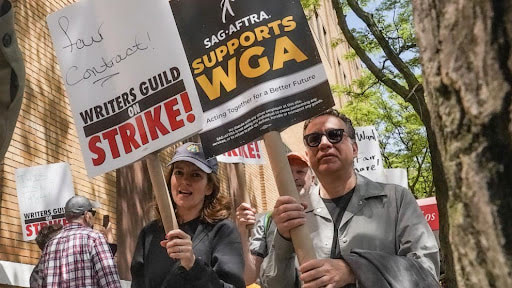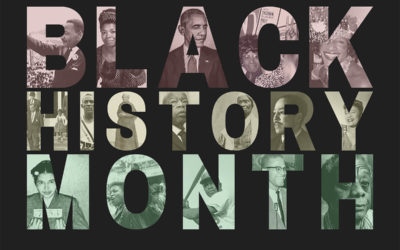Source: ABC News
If a vote just barely crosses the 50% threshold needed for approval (or doesn’t cross it at all), one gets the impression that the voters are fairly divided on a given issue. If the majority of these voters make up a percentage of roughly 75%, then there is a bit more agreement among them, though there are still a significant number of those voting against them. The closer a voting block comes to being 100% in agreement regarding a particular matter, the more unified they seem to be, and the more apparent that their stance on a random subject is something that needs to be addressed and dealt with. In the case of the most recent Writers Guild of America (WGA) strike, just under 98% of voting members agreed that said strike was a necessary effort, taking to the streets and remaining there since May 5th. Considering that only 2% of members voted against a potential strike, it seems that the WGA has legitimate grievances against the Alliance of Motion Picture and Television Producers (AMPTP), the group representing the various major studios who employ the WGA’s thousands of film and television writers, and that nearly all of the union is joined in fighting for what they are owed. Just recently, a similar scenario has begun to play out with another, much larger Hollywood labor union, one that could lead to yet another strike before the end of June.
On the evening of Monday, June 5th, the Screen Actors Guild – American Federation of Television and Radio Artists (SAG-AFTRA) announced that its vote to authorize a nationwide strike had an overwhelming majority of approval, and that if a new, satisfactory contract is not reached between the guild and the AMPTP by June 30th, most, if not all, of the over 160,000 of screen actors, journalists, and various other laborers who comprise the WGA will drop what they are doing and commence picketing throughout Hollywood and wherever else any major film or television productions are supposed to be taking place (though most news and broadcast productions will likely be unaffected and continue to do business as usual). Of the approximately 65,000 members who cast votes, nearly 98% voted in favor of a strike, a total not too dissimilar to that which had been reached by the WGA.
There are several issues at hand that have swayed most voters into pushing for a strike, the most notable being the need for an increase in base compensation (something SAG-AFTRA claims has been severely impacted by inflation and the rise of streaming throughout the entirety of the entertainment industry), demands for the regulation of artificial intelligence (AI) programs that serve as a threat to most currently working actors, and the mandated practice of “self-taped auditions”, which the guild claims passes the burden of cost from the studios and producers to the actors who may struggle to pay for such a service.
“We are approaching these negotiations with the goal of achieving a new agreement that is beneficial to SAG-AFTRA members and the industry overall,” the AMPTP claimed in a statement released shortly after SAG-AFTRA announced that it had voted in favor of authorizing a strike, confident that it would be able to avert such an event prior to the June 30th deadline. Still, the actors’ guild has so far expressed little but dissatisfaction with current negotiations, and with the WGA entering its sixth week of striking, the possibility of SAG-AFTRA and its thousands of members joining the writers in the picket lines only grows more likely with each passing day.
Until just recently, there was actually a strong chance that, on top of the currently striking WGA and the potentially striking SAG-AFTRA, the Directors Guild of America (DGA) would also consider going on strike, which would result in a one-two-three punch against the AMPTP and the studios it represents that may not be so easy for the industry as a whole to overcome. That doesn’t appear to be the case anymore though (or at least not to the same degree), as the DGA, which represents roughly 19,000 film, television, and commercial directors, has reached what they have described as a “truly historic” agreement with the studios, one that they claim addresses many of the same issues that the WGA and SAG-AFTRA are fighting for, as well as those that relate more directly to the directing profession, including safety measures like banning live ammunition on set and practices meant to increase diversity and inclusion in a field largely dominated by white men.
While neither commented specifically on any of the terms reached in the agreement between the DGA and the AMPTP, both the WGA and SAG-AFTRA expressed sentiments of congratulations to the directors who were supposedly able to achieve most of what they had been fighting for, even if this development has done little to change where they currently stand on the issues. Still, there were those whom this agreement did not sit well with, particularly some WGA members who recalled a similar situation playing out around the time of the 2007-2008 Writers Strike. In that instance, the DGA also negotiated its own contract as the WGA picketed, one that they claim forced the WGA to fall back in line and end their strike, something they worry might happen with this most recent strike. “Zero surprise,” claims veteran writer Steven DeKnight of “Pacific Rim: Uprising” fame in a publicly released statement on Twitter. “The AMPTP continues to use their tired old playbook. And the DGA sadly continues to toe the line, knowing that they can draft off of the WGA’s resolve to strike for a truly historic deal. Disappointing, but not surprising.”
At the moment though, the WGA has shown no signs that its strike will come to an end any time soon, with a recent letter stating that “to resolve the strike, the companies will have to negotiate with the WGA on our full agenda”. SAG-AFTRA, should it also commence a strike as agreed upon in the recent authorization vote (which would be the first for the guild since 1980), will most likely maintain a similar position and stand unified against the power of the studios. “Our bargaining strategy has never relied upon nor been dependent on the outcome or status of any other union’s negotiations, nor do we subscribe to the philosophy that the terms of deals made with other unions bind us,” claims SAG-AFTRA’s chief negotiator Duncan Crabtree-Ireland, adding that their recent vote was a “clear statement that it’s time for an evolution in this contract.”




